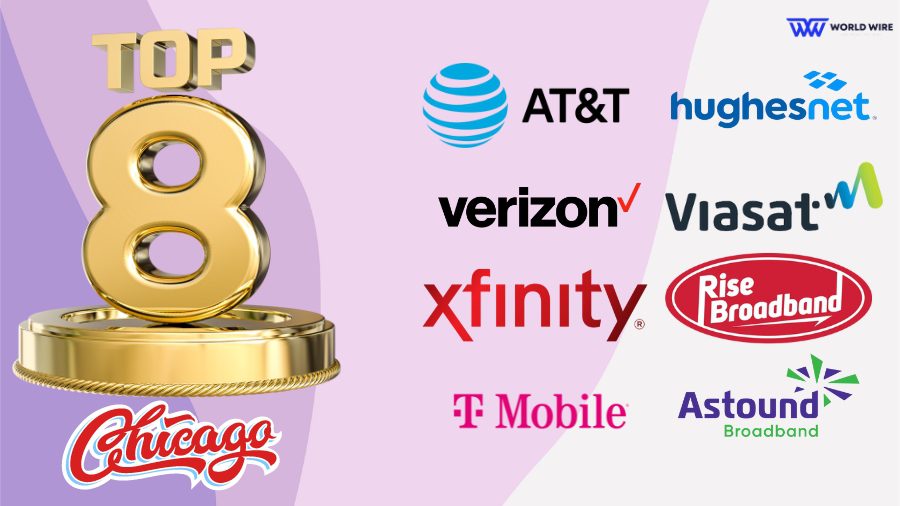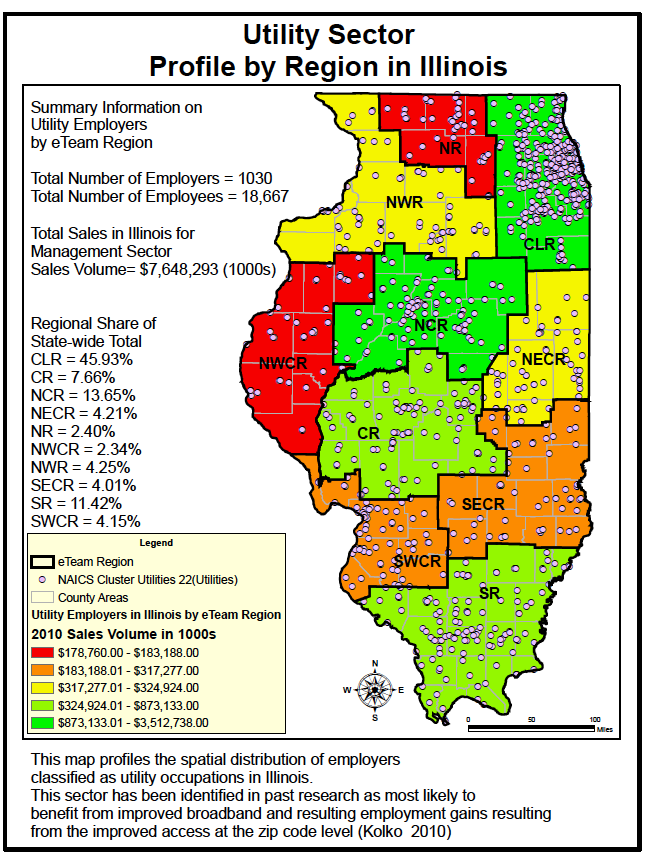Illinois Internet: Find The Best Providers In Your Area Now!
Are you tired of buffering videos and unreliable internet connections? In the digital age, having access to fast, reliable internet is no longer a luxury; it's an absolute necessity, especially in a state like Illinois.
The search for the perfect internet plan often leads to a labyrinth of technical jargon, promotional offers, and confusing price structures. But fear not! Were here to unravel the complexities of internet service in Illinois, offering a comprehensive guide to help you navigate the options and find the best fit for your needs.
Before diving into specific providers, its important to understand the internet landscape in Illinois. The state, while making strides, isn't always leading the pack in terms of internet infrastructure. It ranks 29th in the country for fiber internet availability, with a 14% coverage rate. However, Illinois boasts a stronger presence with DSL (94% coverage) and cable (93% coverage), ranking 10th and 15th nationally, respectively.
Now, let's examine the different connection types available in Illinois:
Fiber Internet: Fiber internet is the gold standard for internet connectivity. It offers the fastest speeds and the most reliable performance, making it ideal for heavy streaming, online gaming, and remote work. Providers like i3 broadband and AT&T internet are at the forefront of fiber deployment in Illinois.
Cable Internet: Cable internet utilizes existing cable television infrastructure to deliver internet service. It offers decent speeds and is widely available in many areas. However, it can be prone to slowdowns during peak usage times.
DSL Internet: DSL (Digital Subscriber Line) uses telephone lines to transmit internet signals. It's a more affordable option, but speeds are generally slower compared to fiber or cable. DSL availability is relatively high in Illinois.
Satellite Internet: Satellite internet offers coverage in areas where other connection types are unavailable. It uses satellites in orbit to transmit data. While it offers widespread coverage, satellite internet can be slower and more expensive than other options, and is often affected by weather conditions.
Understanding the different types of internet services available in Illinois, the next step is to evaluate the providers that offer those services and how they differ.
For example, Let's explore the internet services available in Rockford, Illinois. Rockford is one of the most populous cities in Illinois, with a population of 180,761. The city is home to several major businesses and is near the Rock River, making it an attractive place for people to live.
Here is a table summarizing the internet providers and coverage, in various cities of Illinois.
The table below offers a succinct overview of key internet providers and services, ensuring informed decision-making for residents across the state.
| City | Provider(s) | Connection Types | Availability/Coverage | Notes |
|---|---|---|---|---|
| Champaign | i3 Broadband, AT&T | Fiber, Cable, DSL, Satellite | Fiber: 78.2%, Cable: 96.1%, DSL: 67.8%, Satellite: 100% | Champaign offers a diverse range of connection types, ensuring robust internet options for residents. |
| Springfield | Multiple Providers | Cable, DSL, Copper, Fixed Wireless, Satellite | 25 Providers | Wide variety of providers to choose from. |
| Rockford | Multiple Providers | Cable, DSL, Copper, Fixed Wireless, Satellite | 20 Providers | A good selection of providers catering to different needs. |
| Chicago | Easy internet now, Xfinity, Hughesnet | Cable, Satellite | Easy internet now: 97%, Xfinity: 100%, Hughesnet: 99% | Major providers offer extensive coverage. |
| Orland Park | AT&T, Verizon | IPBB, 5G | AT&T: 88.70%, Verizon: 61.70% | Good options for both IPBB and 5G internet services. |
| Naperville | AT&T | Various | 91.20% | AT&T dominates the area with good coverage. |
When selecting an internet service, consider the following factors:
Speed: Consider your internet usage habits. If you stream videos, game online, or work from home, you'll need higher speeds. Fiber internet offers the fastest speeds.
Price: Compare the monthly costs of different plans. Be aware of promotional rates and any additional fees, such as installation costs or equipment rental charges. Keep in mind that, as stated in the provided data, expert installation can cost up to $85, and other charges and taxes may apply. It is also essential to review the terms and conditions, as prices are subject to change during and after any promotional period.
Reliability: Fiber internet is generally the most reliable option. Cable internet can be less reliable during peak usage times. Check reviews of providers in your area to assess their reliability.
Availability: Not all providers offer service in all areas. Check the availability of providers in your specific location. As seen in the data, certain areas like Champaign have good fiber availability, while others like Rockford may have fewer fiber options but more cable and DSL choices.
Data Caps: Some internet plans have data caps, which limit the amount of data you can use each month. If you use a lot of internet, choose a plan with no data caps or a high data allowance.
Customer Service: Read reviews of providers to assess their customer service reputation. Consider how responsive and helpful the provider is when resolving issues.
Contracts: Some providers require contracts, which can lock you into a specific term. Be sure to understand the terms of any contract before signing up.
As mentioned in the initial information, promotional offers, such as the $45/month deal for qualified new residential customers, are available. However, these offers have specific requirements: customers must not have subscribed to the offered service(s) within the preceding 12 months and must reside within the service area of providers like FiberMeFast powered by Geneseo Communications, Henry County Telephone Company & Cambridge Telcom (GCI). Meeting these requirements is crucial for eligibility.
Additional fees: Also, be aware of potential additional charges. For instance, a $50 equipment restocking fee per household applies when internet service is disconnected, and a fee up to $150 per device may apply if the equipment is not returned. Understanding these fees is key to making an informed decision and avoiding any unexpected costs.
Specific Provider Insights:
AT&T: AT&T internet provides service in several Illinois cities, including Orland Park and Naperville, and offers various connection types. In Naperville, AT&T dominates with download speeds up to 5 Gbps, covering 91.20% of the city. In Orland Park, AT&T delivers IPBB and 5G internet services, reaching speeds of 100 Mbps, covering 88.70% of the area.
Verizon: Verizon offers 5G internet in Orland Park, with speeds up to 50 Mbps, covering 61.70% of the village. It provides a competitive option with a starting price of $50 per month.
Clearwave Fiber: Clearwave Fiber is actively expanding its fiber internet services, providing superior connections to both homes and businesses, and its coverage continues to grow across Illinois.
Xfinity: Xfinity, as indicated, provides 100% coverage in Chicago, making it a significant provider in the city.
Hughesnet: Hughesnet offers 99% availability in Chicago, offering a crucial service, particularly for those in areas where other types of service are limited.
Understanding Your Options:
Comparing Providers: To find the best internet provider for your needs, enter your address to compare the options available in your area. This will provide you with a tailored comparison of providers, plans, and prices.
Location Matters: The availability and type of internet service heavily depend on your specific location within Illinois. As we've seen, coverage rates vary significantly from city to city.
Budget and Value: While fiber is often the best in terms of performance, it may also be the most expensive. Assess your budget and usage needs to determine the best value for your situation. Cable and DSL options often provide cost-effective solutions, especially for light to moderate internet users. With options like AT&T offering download speeds up to 5 Gbps starting at $55 per month, there's a wide range of price points available.
Evaluating Technical Aspects: When comparing the technical capabilities, consider download and upload speeds, as well as the type of technology used. Fiber optic offers the fastest speeds and reliability, while other services like cable may vary. Also, check the availability of customer support and their ratings.
Negotiating the Best Deal: Don't hesitate to negotiate with providers. They might offer better deals or waive installation fees to secure your business. Check for seasonal promotions and bundled services, such as combining internet with TV or phone services, which may offer cost savings.
Be Prepared for Fees: Before signing up, be aware of potential hidden costs. These can include installation fees, equipment rental fees, and early termination fees if you break a contract. The details mentioned earlier, such as equipment restocking fees, and device non-return fees, are important to consider.
Future-Proofing Your Connection: Consider the future. As internet demands grow, fiber optic connections are more likely to remain relevant and fast in the long run. If fiber is not immediately available in your area, consider options like cable that offer faster speeds than DSL, or fixed wireless. Consider the scalability and future-proofing aspect of your choice.
Staying Informed: The internet service landscape is constantly evolving, with new providers and technologies emerging. Stay informed about the latest trends and offerings by regularly checking comparison websites and reading industry news.
Conclusion
Finding the right internet service in Illinois involves careful research, consideration of your specific needs, and a willingness to compare different options. By understanding the different connection types, evaluating providers, and considering factors like speed, price, and reliability, you can make an informed decision and ensure that you have the fast and reliable internet service that you need. While the state's fiber coverage may not be the highest in the nation, the presence of robust DSL and cable networks, combined with the continued expansion of fiber, offers Illinois residents a range of choices. Remember to check availability in your area, compare providers, and read the fine print to find the best internet plan for you. With the right approach, you can secure a reliable internet connection that meets your needs and enhances your digital life.


